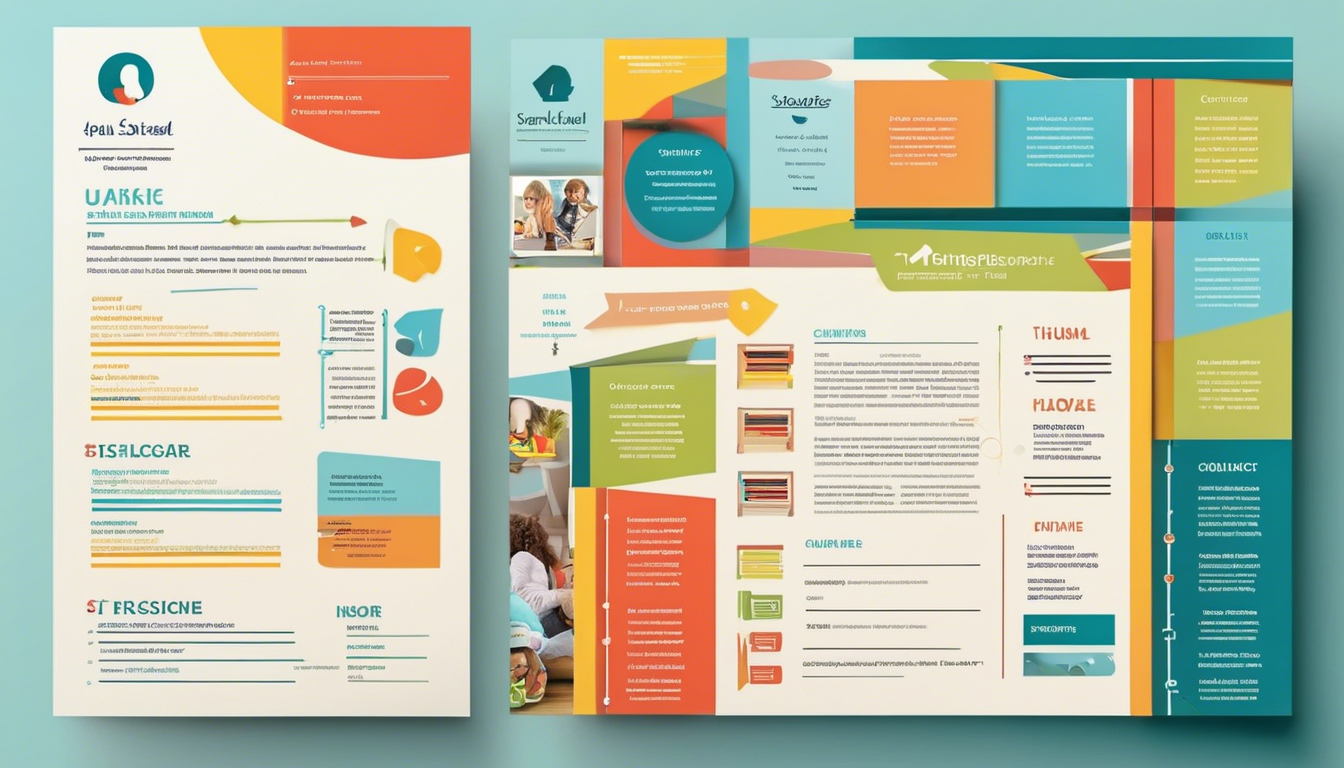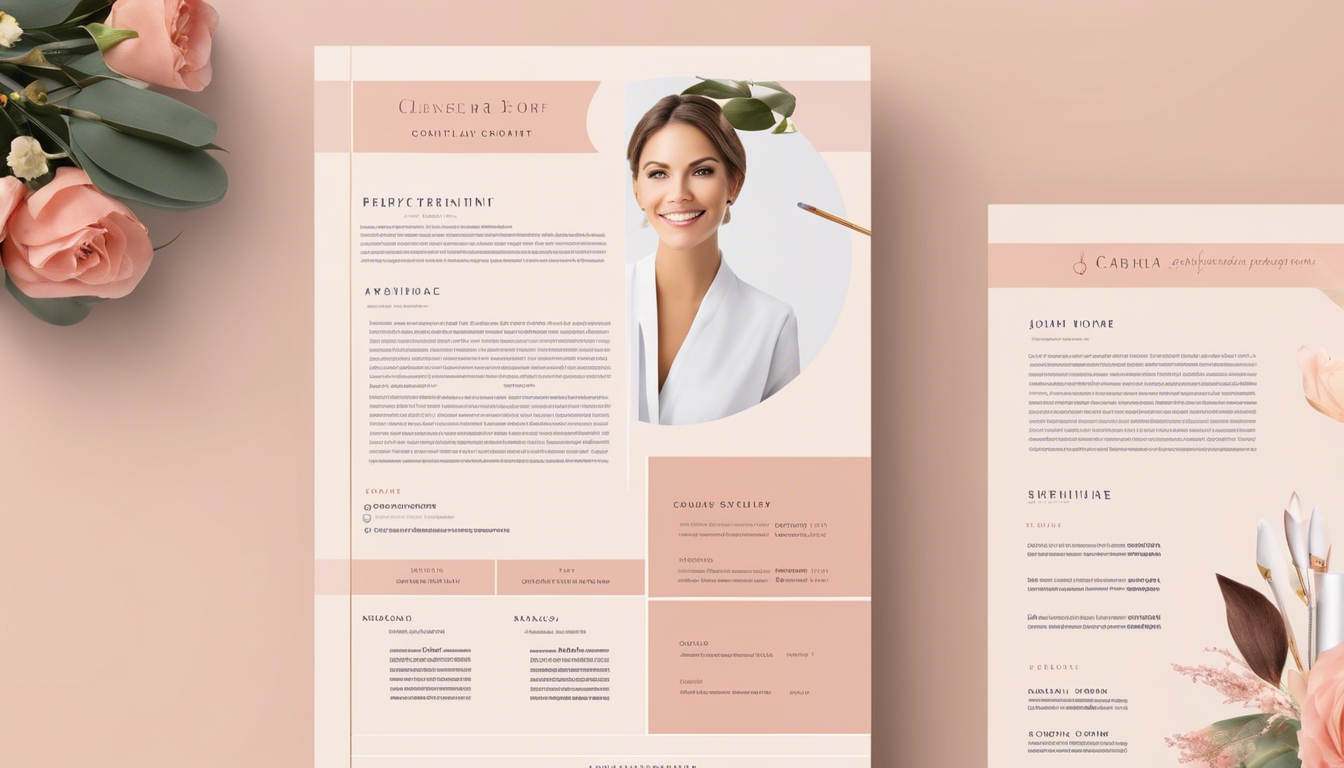In today's competitive job market, a well-crafted resume is your ticket to landing that dream civil engineering position. Whether you're a recent graduate or an experienced professional, your resume serves as the first impression you make on potential employers. It's not just a document listing your qualifications; it's a strategic tool that showcases your skills, experiences, and potential value to prospective employers.
This comprehensive guide will walk you through the process of creating a standout civil engineer resume, ensuring you highlight your strengths and stand out from the crowd.
You may also be interested in:

Introduction
Importance of a Strong Civil Engineer Resume
A strong civil engineer resume is crucial in today's competitive job market. It serves as your personal marketing tool, highlighting your skills, experiences, and achievements to potential employers. A well-crafted resume can be the difference between landing an interview and being overlooked. In the field of civil engineering, where technical expertise and project experience are highly valued, your resume needs to effectively communicate your capabilities and showcase your contributions to past projects.
Overview of Resume Expectations in Civil Engineering
Employers in the civil engineering sector have specific expectations when reviewing resumes. They look for candidates with a solid educational background, relevant work experience, and a mix of technical and soft skills. Your resume should demonstrate your proficiency in engineering principles, familiarity with industry-standard software, and your ability to contribute to complex projects. Additionally, employers value candidates who can communicate effectively, work well in teams, and solve problems creatively.
Build Your Civil Engineer Resume with TalenCat CV Maker
TalenCat CV Maker is an AI-powered resume editor that provides a wide variety of built-in resume modules to maximize the customization of your civil engineer resume. With TalenCat CV Maker, you can build your resume with various content modules:
- Basic Information
- Self-Summary
- Profile
- Education Information
- Work Experience
- Project Experience
- Languages
- Awards
- Interests
- Volunteer Experience
Also, you can add a custom section to customize more unique content. In each section, you can even utilize generative AI to help you improve the efficiency and quality of content.

If you want to write an effective personal summary for your resume, TalenCat CV Maker is definitely the best option for you.
Resume Format and Layout
The format and layout of your resume play a crucial role in making a positive first impression. A well-organized resume not only looks professional but also makes it easier for hiring managers to quickly find the information they're looking for.
Choosing the Right Format
When it comes to civil engineer resumes, the format you choose can significantly impact how your qualifications are perceived. There are primarily two formats to consider: chronological and functional.
Chronological vs. Functional Resumes
Chronological resumes list your work experience in reverse chronological order, starting with your most recent position. This format is ideal for civil engineers with a consistent work history in the field. It allows you to showcase your career progression and highlight your most recent and relevant experiences.
Functional resumes, on the other hand, focus on your skills and abilities rather than your work history. This format can be beneficial for recent graduates or those changing careers, as it emphasizes your capabilities over your work timeline.
For most civil engineers, a chronological format or a combination of both (known as a hybrid format) is often the most effective choice. It allows you to showcase your career progression while also highlighting key skills relevant to the position you're applying for.
Tips for a Professional Layout
- Use a clean, easy-to-read font such as Arial, Calibri, or Times New Roman.
- Keep font sizes between 10 and 12 points for body text, and slightly larger for headings.
- Maintain consistent formatting throughout the document.
- Use bullet points to list achievements and responsibilities for easy scanning.
- Include plenty of white space to make the resume visually appealing and less cluttered.
- Limit your resume to 1-2 pages, depending on your experience level.
Sections of a Civil Engineer Resume
A well-structured civil engineer resume typically includes the following sections:
Contact Information
Place your contact information at the top of your resume. Include your full name, phone number, professional email address, and location (city and state). If applicable, you can also add links to your LinkedIn profile or professional website.
Objective or Summary Statement
An objective statement briefly outlines your career goals and is more suitable for entry-level positions or career changers. A summary statement, on the other hand, provides a quick overview of your professional experience and key qualifications. For experienced civil engineers, a summary statement is often more effective.
Example summary statement: "Licensed Professional Engineer with 8+ years of experience in structural design and project management. Skilled in AutoCAD and STAAD Pro, with a proven track record of completing projects on time and within budget. Seeking a challenging position as a Senior Structural Engineer to contribute to innovative infrastructure projects."
Education
List your educational qualifications in reverse chronological order. Include the name of the institution, degree earned, major, and graduation date. If you're a recent graduate, you may want to include relevant coursework, academic achievements, or your GPA if it's above 3.5.
Work Experience
This section is crucial for showcasing your professional journey and accomplishments. List your work experiences in reverse chronological order, including your job title, company name, dates of employment, and key responsibilities and achievements. Use bullet points to make this section easy to read.
Skills
Highlight both technical and soft skills relevant to civil engineering. This may include proficiency in specific software, knowledge of engineering principles, and soft skills like project management or team leadership.
Certifications and Licenses
Include any relevant certifications or licenses you hold, such as your Professional Engineer (PE) license or certifications in specific software or methodologies.
Crafting Your Work Experience Section
The work experience section is often the most crucial part of your civil engineer resume. It's where you demonstrate your practical skills and showcase your contributions to past projects.
Highlighting Relevant Projects
When describing your work experience, focus on projects that are most relevant to the position you're applying for. Provide context about the project's scope, your role, and the impact of your contributions.
Using Action Verbs Effectively
Start each bullet point with a strong action verb to make your achievements more impactful. Some effective action verbs for civil engineers include:
- Designed
- Implemented
- Analyzed
- Managed
- Optimized
- Supervised
- Coordinated
- Developed
Example: "Designed a cost-effective drainage system for a 50-acre residential development, reducing flood risks by 40% and saving the client $500,000 in construction costs."
Detailing Responsibilities and Achievements
When describing your roles and responsibilities, focus on your achievements rather than just listing your duties. Employers are interested in the results you've produced and the value you've added in your previous positions.
Quantifying Accomplishments
Whenever possible, use numbers and percentages to quantify your achievements. This provides concrete evidence of your impact and makes your resume more compelling.
Example: "Managed a team of 15 engineers and technicians on a $20 million highway expansion project, completing the project 2 months ahead of schedule and 5% under budget."
Skills to Highlight in a Civil Engineer Resume
Civil engineering requires a diverse set of skills, both technical and interpersonal. Your resume should showcase a balanced mix of these skills to demonstrate your well-rounded capabilities.
Technical Skills
Technical skills are the foundation of your civil engineering expertise. These skills demonstrate your ability to perform the core functions of the job.
Software Proficiencies
List the software programs you're proficient in, especially those commonly used in civil engineering. Some key software to include:
- AutoCAD
- STAAD Pro
- SAP2000
- Revit
- Civil 3D
- MicroStation
- GIS software (e.g., ArcGIS)
- Microsoft Office Suite (especially Excel for calculations and Project for project management)
Engineering Principles and Techniques
Highlight your knowledge of fundamental engineering principles and techniques relevant to your specialization. This might include:
- Structural analysis and design
- Geotechnical engineering principles
- Hydraulic and hydrologic modeling
- Transportation planning and design
- Environmental impact assessment
- Construction management techniques
- Building Information Modeling (BIM)
Soft Skills
While technical skills are crucial, soft skills are equally important in the collaborative field of civil engineering.
Communication and Teamwork
Emphasize your ability to communicate effectively with diverse stakeholders, including team members, clients, and regulatory bodies. Highlight experiences where you've successfully worked in multidisciplinary teams or led group projects.
Problem-Solving Abilities
Civil engineers often face complex challenges that require innovative solutions. Showcase your problem-solving skills by mentioning specific instances where you've overcome obstacles or developed creative solutions to engineering problems.
Example: "Developed an innovative foundation design for a high-rise building in a seismically active area, reducing construction costs by 15% while exceeding safety standards."
Customizing Your Resume
One size does not fit all when it comes to resumes. Tailoring your resume for each job application can significantly increase your chances of landing an interview.
Tailoring Your Resume for Job Applications
Researching the Job Description
Before submitting your resume, carefully read the job description and research the company. Identify the key skills and experiences they're looking for and ensure your resume highlights these areas.
Using Keywords from Job Listings
Many companies use Applicant Tracking Systems (ATS) to screen resumes. Incorporate relevant keywords from the job description into your resume to increase your chances of passing through these initial screenings. However, ensure that the inclusion of these keywords feels natural and accurately represents your skills and experiences.
Example: If the job description emphasizes "sustainable design" and "LEED certification," you might include a bullet point like: "Contributed to the design of a LEED Gold-certified office building, implementing sustainable design principles that reduced energy consumption by 30%."
Common Mistakes to Avoid
Even the most qualified candidates can be overlooked if their resume contains common errors. Here are some mistakes to avoid:
Overloading with Information
While it's important to showcase your skills and experiences, avoid cramming too much information into your resume. Focus on the most relevant and impressive details. Use concise language and bullet points to make your resume easy to scan.
Neglecting to Proofread
Typos and grammatical errors can make a poor impression and suggest a lack of attention to detail – a critical skill for civil engineers. Always proofread your resume multiple times and consider having a colleague or professional review it as well.
Using an Unprofessional Email Address
Your email address should be professional and ideally include your name. Avoid using nicknames or humorous email addresses that might be appropriate for personal use but not for job applications.
Resume Examples and Templates
Analyzing Effective Civil Engineer Resume Samples
Studying well-crafted civil engineer resumes can provide valuable insights into effective formatting and content. Look for examples that match your experience level and career goals. Pay attention to how they structure information, highlight key achievements, and present technical skills.
Accessing Template Resources
While templates can be a helpful starting point, it's important to customize them to reflect your unique experiences and skills. Many professional organizations and career websites offer resume templates specifically designed for engineers.
Additional Resources
Websites for Resume Help
Several websites offer valuable resources for resume writing and job search strategies. Some recommended sites include:
- LinkedIn: Offers resume-building tools and networking opportunities.
- Indeed: Provides resume templates and job search features.
- Engineering.com: Offers career advice and job postings specific to engineering fields.
Professional Organizations and Networking
Joining professional organizations can provide networking opportunities and access to career resources. Consider memberships in organizations such as:
- American Society of Civil Engineers (ASCE)
- Institute of Transportation Engineers (ITE)
- American Public Works Association (APWA)
These organizations often offer resume reviews, mentorship programs, and job boards specific to civil engineering.
Conclusion
Recap of Key Points
Creating an effective civil engineer resume requires careful consideration of format, content, and presentation. Remember to:
- Choose the right format that best showcases your experience.
- Highlight relevant projects and quantify your achievements.
- Showcase both technical and soft skills.
- Tailor your resume for each job application.
- Avoid common mistakes like typos and unprofessional email addresses.
- Utilize resources like professional organizations and networking opportunities.
Encouragement to Invest Time in Your Resume
Your resume is often your first opportunity to make an impression on potential employers. Investing time and effort into crafting a strong, well-tailored resume can significantly improve your chances of landing interviews and ultimately securing your desired position in the civil engineering field. Remember that your resume is a living document – continue to update and refine it as you gain new experiences and skills throughout your career.
By following the guidelines in this comprehensive guide, you'll be well-equipped to create a standout civil engineer resume that effectively communicates your value to potential employers. Good luck with your job search!




